Best bike rollers 2025: add a little spice to your indoor cycling sessions
Our pick of the best bike rollers for those looking to break up the monotony of indoor cycling, with a little more rock and roll
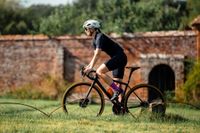
Matt Ischt-Barnard
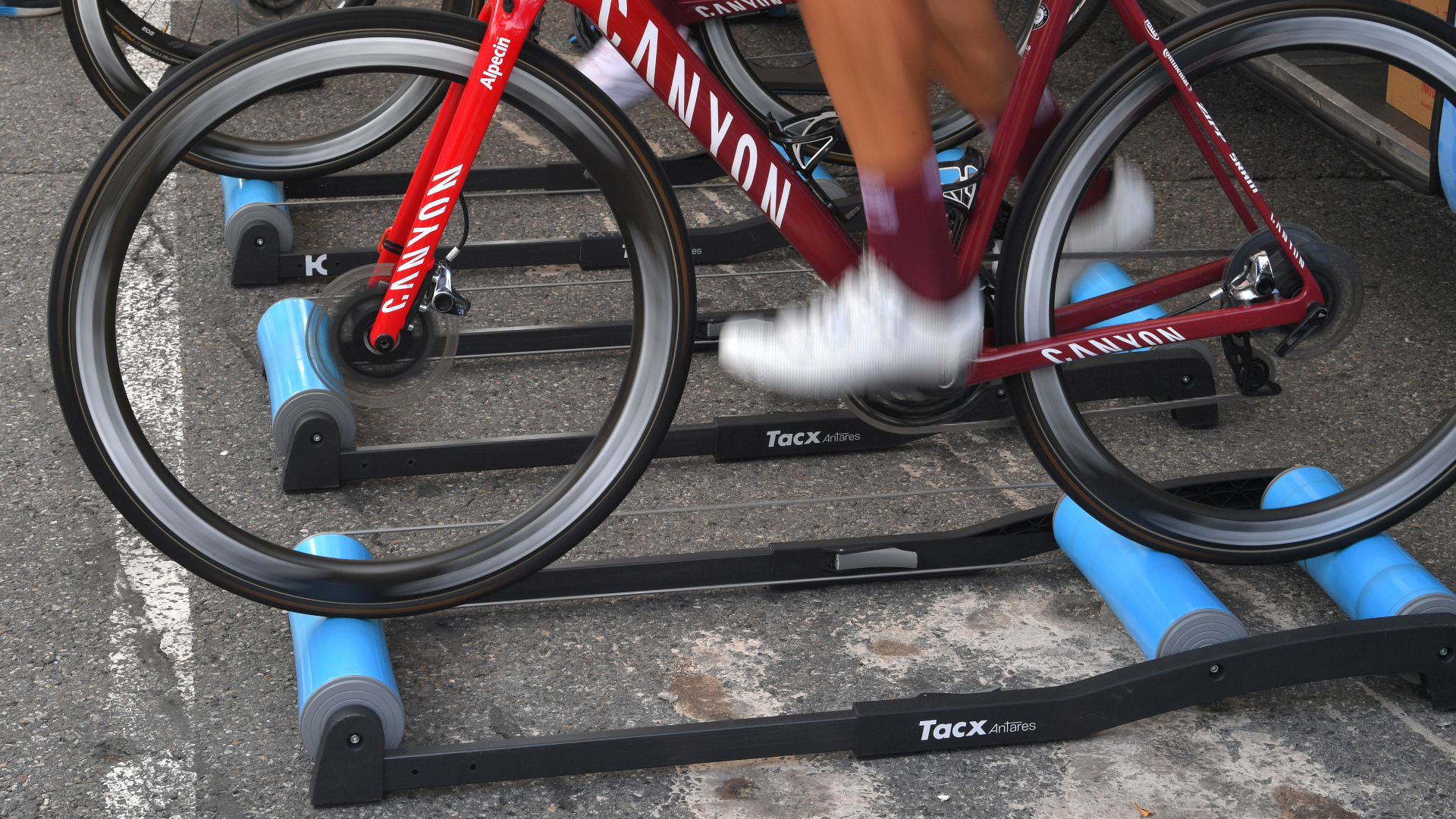
Having fallen out of favour in recent years with the rise of Zwift and other Indoor training apps, Rollers continue to be popular among more serious riders and racers. Requiring more technical riding ability, the best bike rollers add realism to indoor training, helping to keep boredom at bay.
The best bike rollers develop much more than just your legs. They help to improve balance, pedalling style, the ability to concentrate for extended periods and riding in a tight space, replicating a bunch or peloton. Their ease of transportation also makes them great warm-up tools for shorter, more intense racing like Cyclocross, Track and Crit racing.
In this guide, I have curated six of the best bike rollers tested and rated by the Cycling Weekly tech team. Two distinct categories separate the intended use of rollers. Units like our Best Smart Roller, the Elite Arion, and the Wahoo Kickr Rollr bring the connectivity of the best smart trainers together with the greater realism that rollers can offer.
The alternative unplugged units suit those who travel frequently for their racing or prefer much shorter, higher-intensity sessions. Units like our Best Overall Rollers, the Garmin Taxc Galaxia, with its built-in rocker base and low entry cost, tick many boxes.
If you would like to learn more about riding rollers, check out our guide on how to ride on rollers. Alternatively, check out our How to choose section at the bottom of this page.
The Quick List
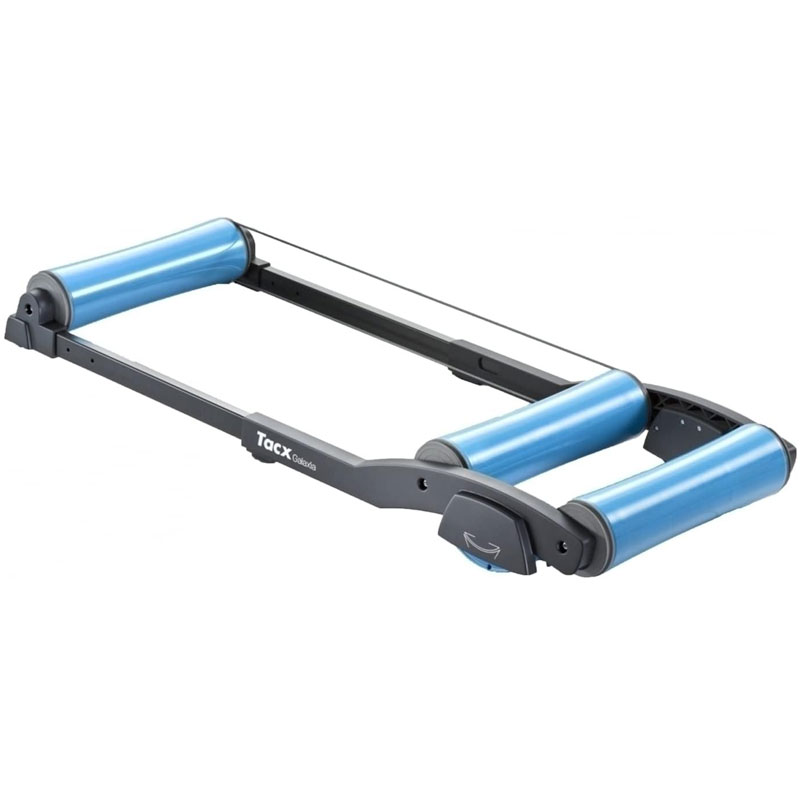
The Tacx Galaxia includes parabolic rollers, which help keep the bike in the centre for a more stable ride. The swing system helps to absorb any sudden accelerations and improves ride feel.
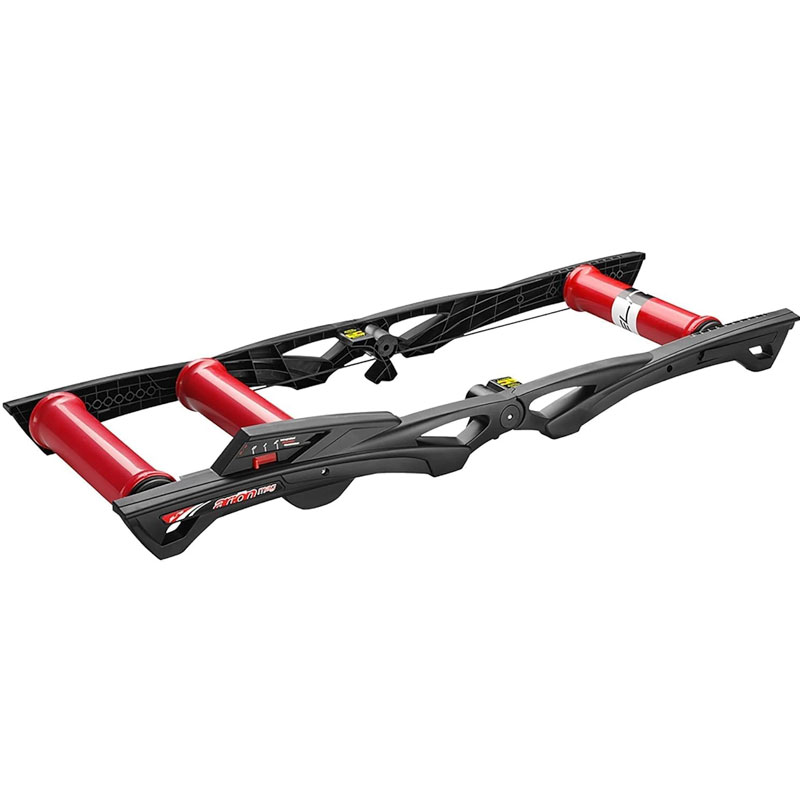
Compatible with Zwift and other training apps, the Arion Mag is light, quiet, and the parabolic rollers help keep you upright with a simulated climb of up to 5%, adding additional realism.
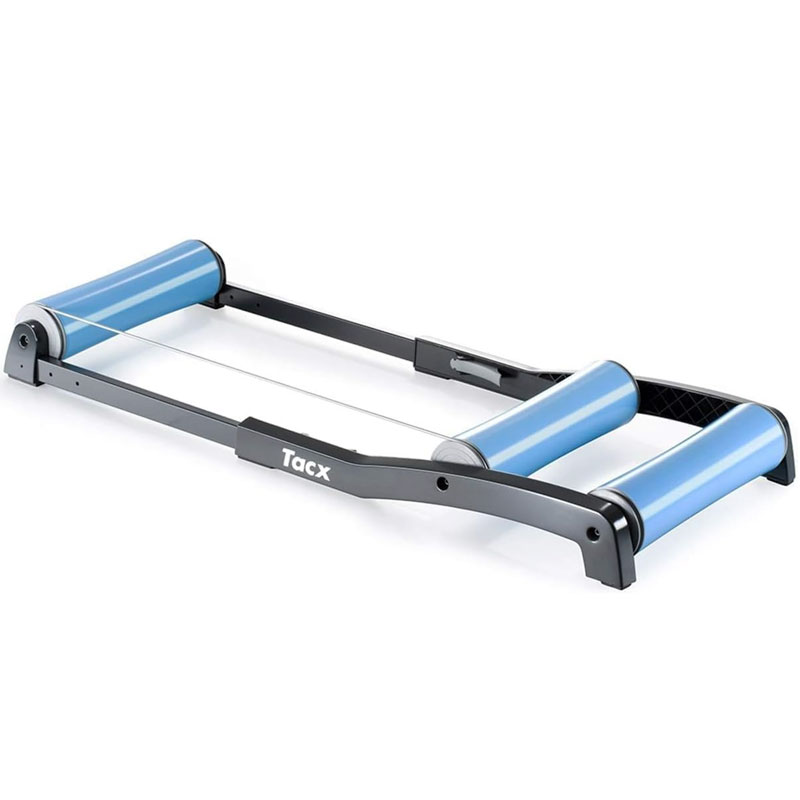
Hugely popular not just for its low cost of entry, but for beginners and riders lacking confidence, thanks to the Antares parabolic-shaped rollers.
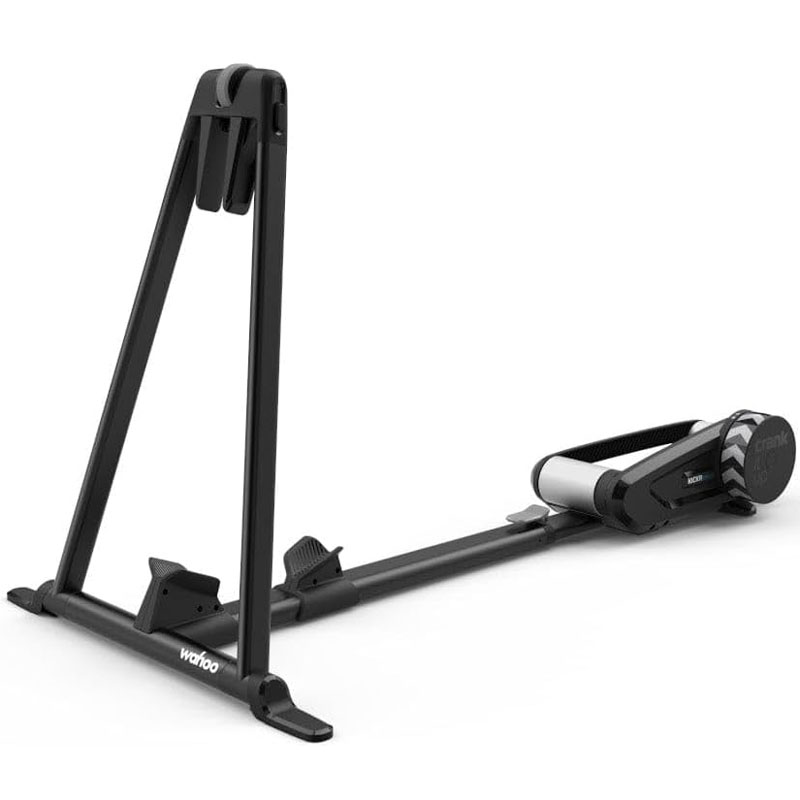
If you're nervous about riding unsupported, the Wahoo Kickr Rollr anchors your bike while you ride, without hampering the roller experience.
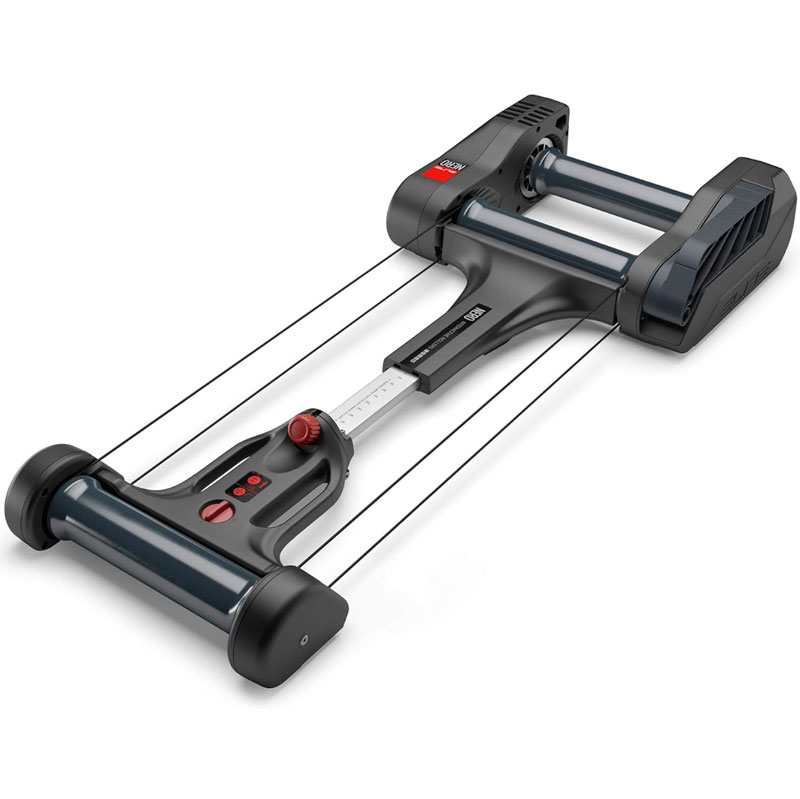
The Elite Nero rollers tick a lot of specification boxes. Gradient simulation, rocker base, smart app connectivity and high power output make it one of the most realistic rollers to ride.
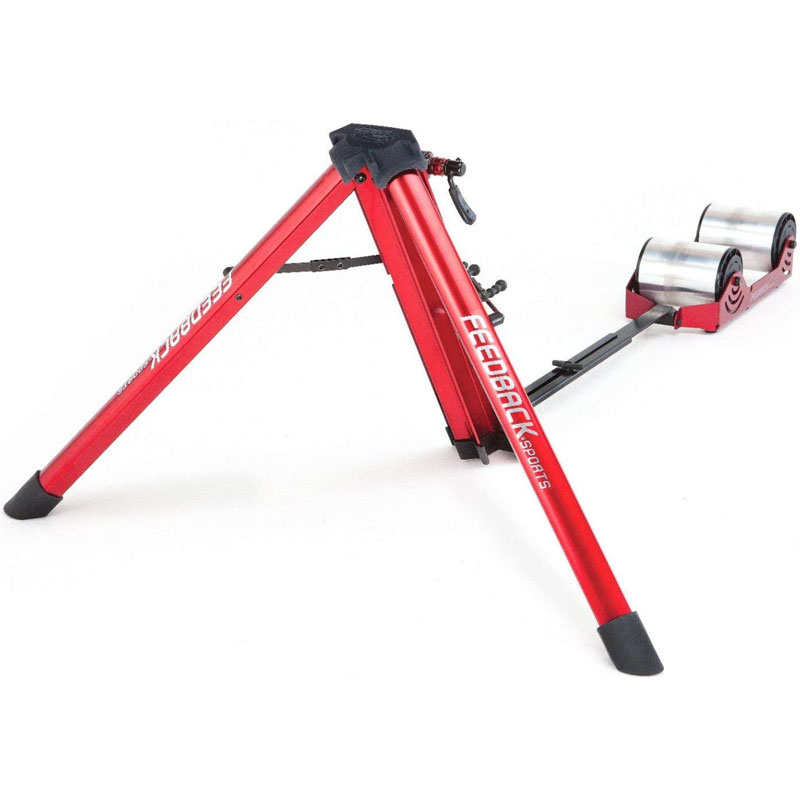
Ideal for pre-race warm-ups due to its stability and self-generated resistance, the Omnium security lowers the risk of any embarrassing moments.
Best Bike Rollers 2025
Best overall
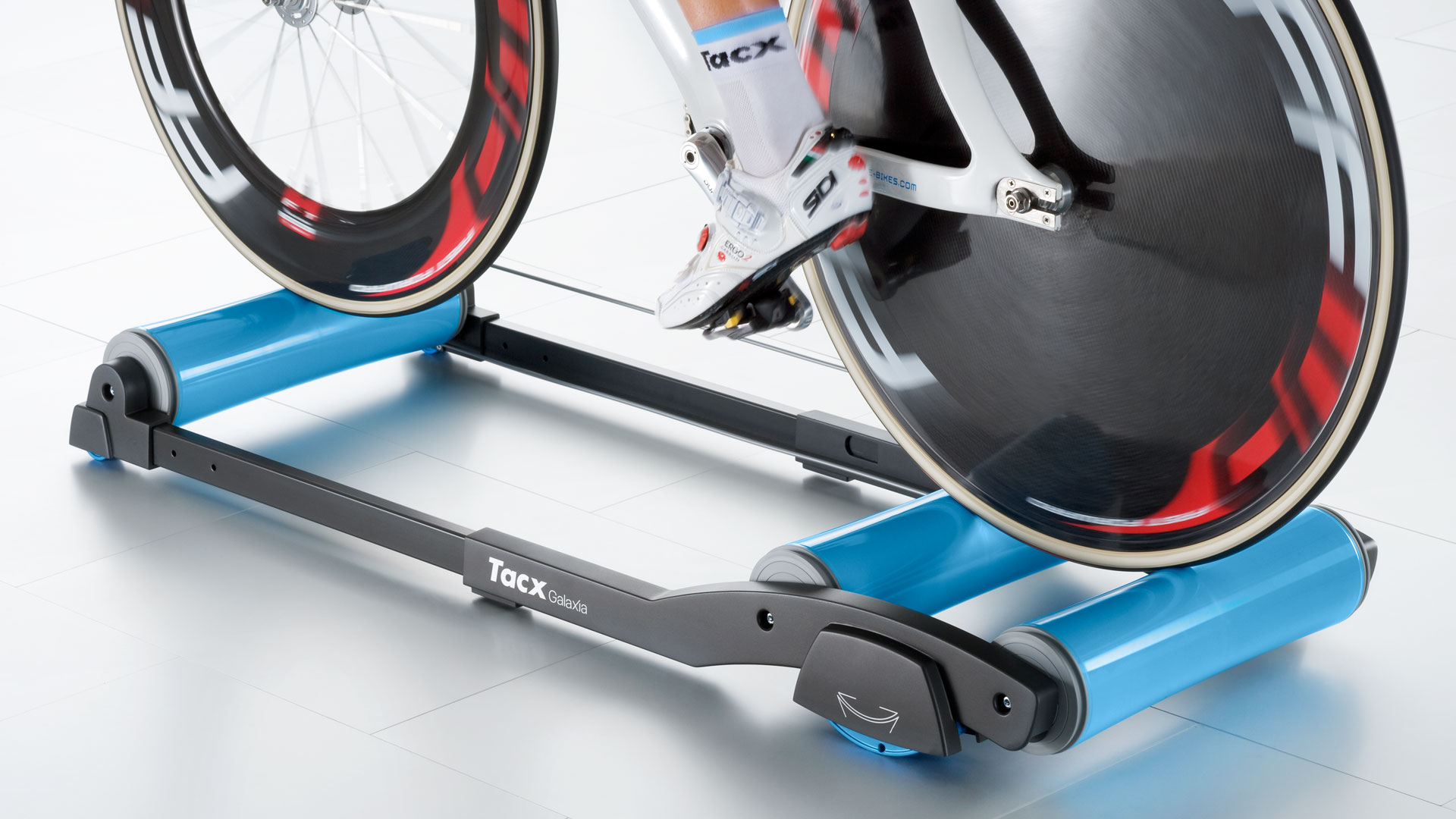
1. Tacx Galaxia Rollers
Specifications
Reasons to buy
Reasons to avoid
Go one step up the rungs with Tacx and you can get their Galaxia rollers. These feature a patented 'swing system', which allows them to swing back and forth very slightly.
Disconcerting as this may sound, it allows the roller to absorb some of the forward motion when you accelerate, change speed, or otherwise stamp on the pedals and we felt that this gave a a nicer feel to the rollers.
All the rest still applies - and both Tacx units retract (rather than fold as most do) to 80cm.
Best smart roller
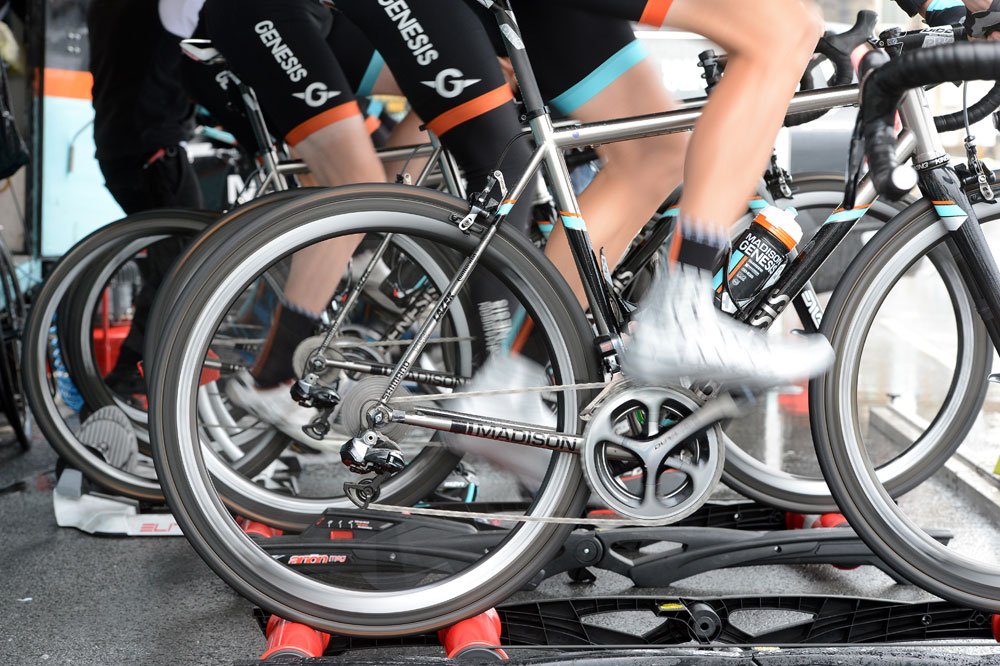
Pros regularly use rollers for warm-ups thanks to their ease of transportation and setup
2. Elite Arion Mag Rollers
Specifications
Reasons to buy
Reasons to avoid
These rollers offer electronically controlled resistance. ANT+ is utilised to send power, speed and cadence data to computers, whilst Bluetooth connectivity means that you can use indoor cycling apps like Zwift and Trainer Road. Added to that, this impressive piece of kit can even simulate climbs up to 5% making us feel more involved when using Zwift.
The rollers are parabolic, with a slight lip at the edge. They're capable of managing up to 645 watts, and the resistance unit is electromagnetic. Like all the others, they're foldable and feature several wheelbase adjustments.
- Read our full Elite Arion Digital Smart B+ E-Rollers review
Best budget
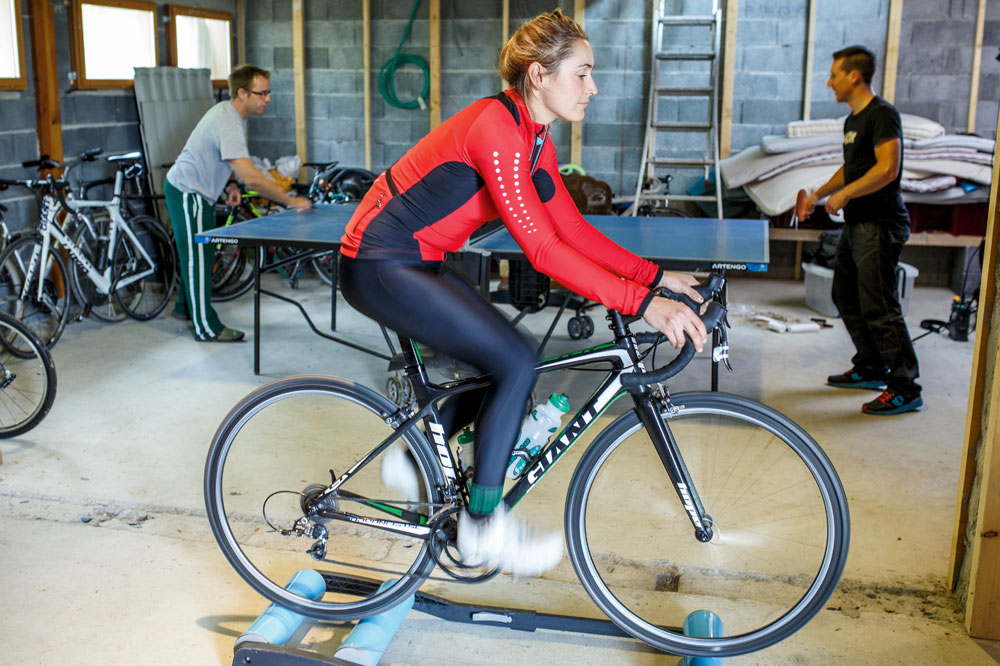
3. Tacx Antares Rollers
Specifications
Reasons to buy
Reasons to avoid
The Tacx Antares rollers are particularly popular because of the conical shape of the drums - they dip in the middle, so it was easier for us to remain in the middle of the drum pretty much the whole time.
If you'd like more assurance, or perhaps a 'halfway-house' in learning to use the rollers, Tacx also has a Tacx Antares Rollers Support Stand you can purchase separately. This clasps the front wheel and lets you get used to the feeling on the rear before going all the way.
The Tacx Antares rollers are collapsible and have several wheelbase adjustments.
Best turbo trainer alternative
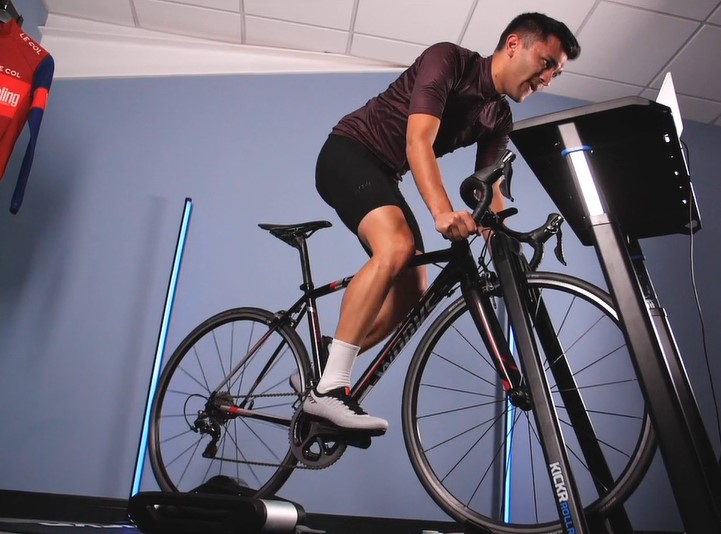
4. Wahoo Kickr Rollr
Specifications
Reasons to buy
Reasons to avoid
Releasing in 2022, the Kickr Rollr retained many of the appealing elements of a roller, but made it accessible to both beginners and experienced cyclists with its fuss-free design and simplicity. However, it lacked the immersive experience that was the key selling point of most of the best smart trainers. The recently updated features, which are available to existing Rollr users via a software update and new owners from initial set-up, promise consistent power readings that will allow users to follow structured training plans better and better compatibility with online platforms like Zwift and Rouvy. Read the full story - Wahoo updates Kickr Rollr with onboard power for more accurate readings
Wahoo's Kickr Rollr is an excellent option for those seeking the smart benefits and stability of turbo trainers – but with the natural ride feel and convenience of rollers.
Easy to set up, you don't need to remove the wheels, it's also an enticing option for those after a platform for warming up before an event.
Unlike traditional rollers which require a keen sense of balance, with the Kickr Rollr a clamp holds and supports the front wheel, making these very easy to get going with. You also benefit from a little bit of sway at the back, which makes the ride feel much more natural than riding with a fully 'locked-in' turbo trainer.
Out-of-the-saddle efforts are also possible, too, with our tester never experiencing any rear wheel slippage.
The Kickr Rollr simulates gradients up to 10% and is ‘smart’ but for the actual power measurement and controllable resistance (up to 1,500 watts), it has to be connected with a bike-mounted ANT+ power meter.
- Read our full Wahoo Kickr Rollr first ride review
Most realistic
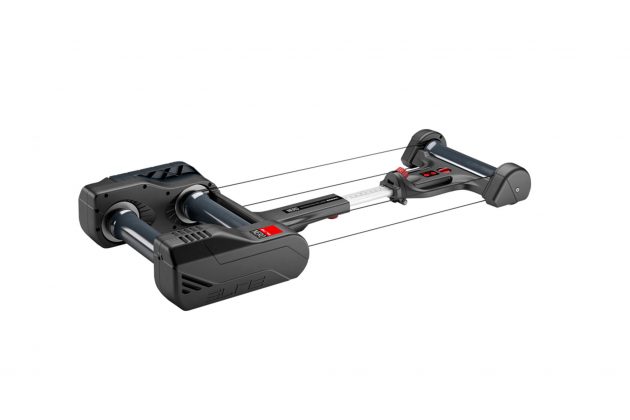
5. Elite Nero Interactive rollers
Specifications
Reasons to buy
Reasons to avoid
When it comes to rollers, the Elite Nero is about as Gucci as they come. First and foremost, they are smart, capable of generating up to 830W of resistance and simulating a 7% grade. They are both ANT+ and Bluetooth enabled so the rollers can talk to any head unit or the training app of your choice.
Elite has also built what it calls a floating system which introduces a bit of fore and aft give into the rollers to absorb abrupt movement caused by changes in speed and prevent you from flying over the front or back. We felt that this worked well, improving the 'road feel' of the rollers.
Most stable
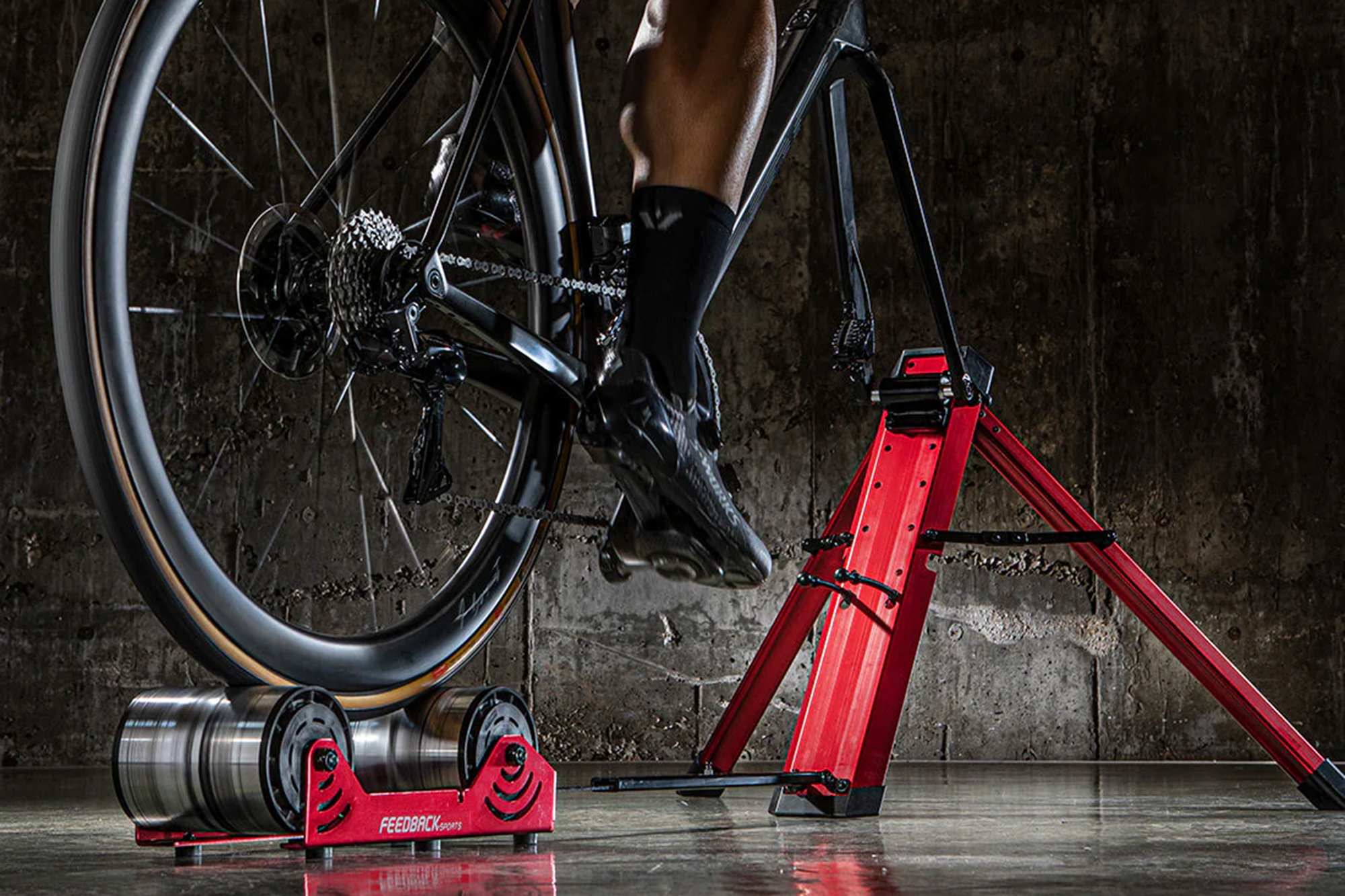
6. Feedback Sports Omnium Rollers
Specifications
Reasons to buy
Reasons to avoid
The roller itself aims to offer a real-life feel, thanks to the use of 'Internal Progressive Resistance'. You could use this trainer for full indoor sessions, but for us, it really shone when it came to race warm-ups and the like.
A steel frame offers a sturdy attachment for the fork and will accept both standard QRs and thru-axles. Its length is adjustable to match the wheelbase of your bike and ranges from 840mm / 33in to 1200mm / 47.2in. The set-up comes with a heavy-duty, padded tote bag for transport and storage.
How we test
At Cycling Weekly, our testing process revolves around our tech team entering the pain cave to sweat it out countless times every year, putting all the best Indoor training aids through their paces.
All the Rollers in this buyer's guide have been through many static kilometres and miles. Ease of setup, app connectivity, portability and stability are the key areas of focus when we test. Additionally, essential considerations include resistance levels, gradient or movement simulations, and the accuracy of the data output, which will depend on each unit's specifications, of course.
During testing, our writers will simulate a broad range of training styles and sessions, including high-intensity and maximum efforts, as well as low-intensity and recovery rides. These sessions will be repeated several times throughout testing for each Roller unit. First, determine a base and then verify the replication of data and feel.
How to choose the best bike rollers
Do you need rollers?
The first question you need to ask yourself is, Do I need rollers? While rollers are brilliant and certainly offer something slightly different from the best smart trainers, they aren't for everyone, and their use case differs somewhat from that of a turbo trainer.
So, let us get on to the differences...
Whats the difference between Rollers and a Turbo Trainer?
Not having to attach the wheel or drivetrain means significantly fewer compatibility requirements, as setup and space are required to use rollers. This makes rollers great for pre-race warm-ups, short sessions, and those looking to do more than just pedal. It's common to see riders at all levels warming up on rollers ahead of big mountain days, Cyclocross, or Crit racing.
Turbo trainers have gained popularity in recent years, thanks to the likes of Zwift and other indoor training apps, which help reduce the monotony of indoor cycling. The realism of these units is now second to none. Those with a dedicated space, allowing for a consistent setup, are more likely to use their trainer and have higher-quality sessions.
Rollers are for more than just fitness; in fact, following a specific workout on a roller can be quite challenging, as shifting your focus from your riding to a computer or tablet can be a little tricky. However, bike rollers can help develop your bike handling, especially for those who need to hone their riding skills in tight spaces like a peloton. For training, there is also a significant overlap with turbo trainers and the best exercise bikes or indoor smart bikes.
We have a piece dedicated to this topic - rollers vs turbo trainers: which is better? With videos and advice for riding rollers from beginners to pros.
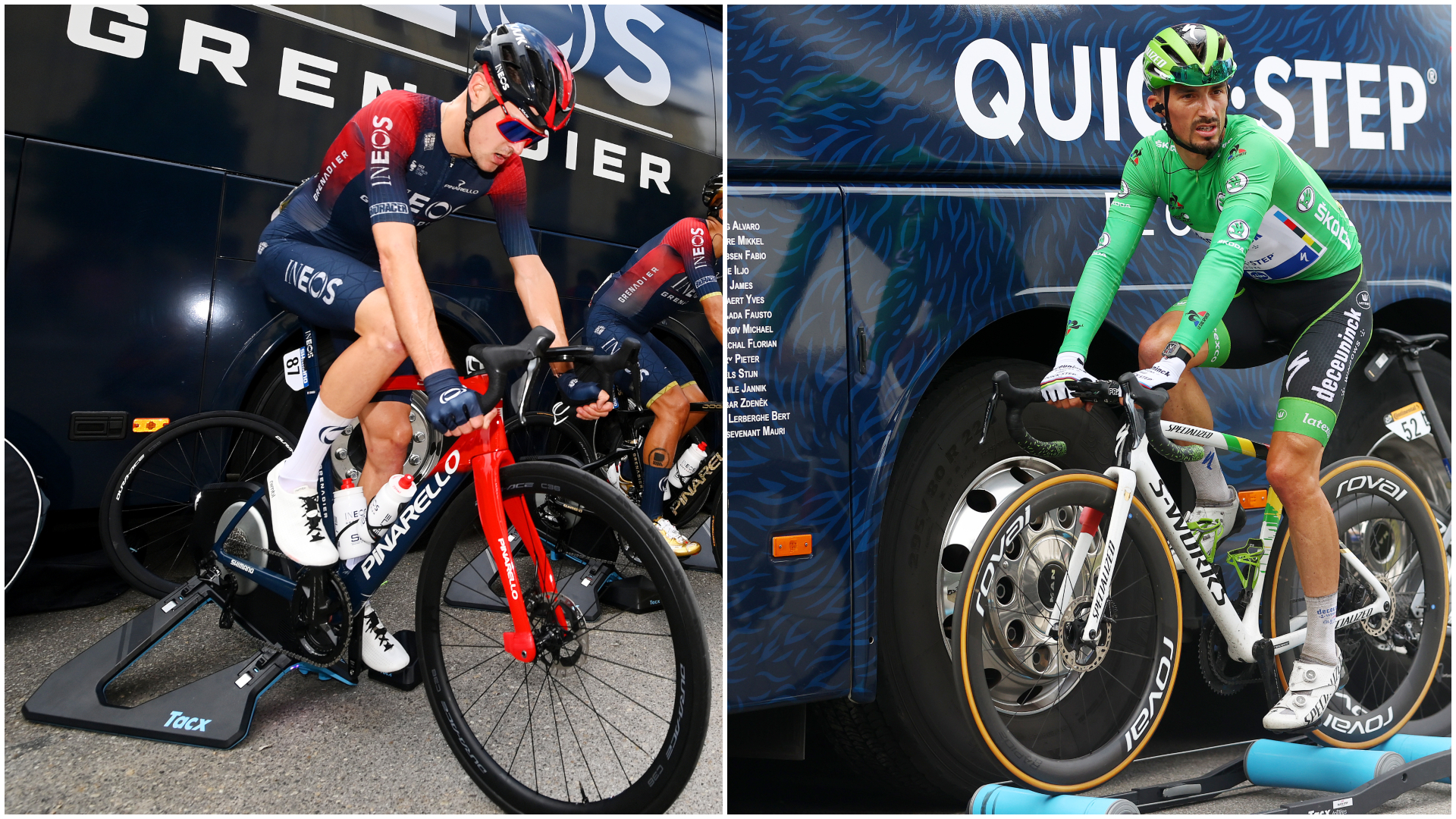
Are Rollers transportable and easy to storage?
While rollers and smart trainers differ enough to make direct comparison challenging, transportation and storage are areas where rollers have a comparable edge. The significant reason for this is their shape to start with, rollers are 'flat' in design and generally not very heavy, which makes them easy to pick up and stand against a wall, for example; many also fold or retract, making them even more compact.
Thats not always the case, of course, with units like the Wahoo Kickr Rollr, which is more comparable to a smart trainer experience; however, it does fold flat like a more traditional roller unit.
On the flip side of the coin, smart trainers pack a lot more technology, making them more accurate. Modern units, thanks to bike standards mostly shifting to thru axles and single cassette standards, have made it significantly easier to quickly fit a bike to a turbo trainer.
FAQs
How do Rollers work?
Rollers generally consist of three cylindrical drums, driven via a belt connecting two of the drums allowing them to rotate beneath your bike's wheels. Turning your spinning wheels into a static rolling road.
This is not always the case, units like the Wahoo Kickr Rollr and Feedback Sports Omnium have two small rollers supporting only the back wheel. With the front wheel held in a stand or support.
Is it hard to ride a bike on rollers?
Riding Rollers can take some time to master. The technique required to balance and pedalling on the narrow rollers can be tricky, a journey that has to be done in stages. That all begins with riding between two door frames or next to a table, basically some fairly solid to grab in an emergency. Then step-by-step gradually reduce your reliance on the support as confidence grows.
Check out our handy guide on how to ride on rollers including videos and expert advice.
Are bike rollers a good workout?
Completing a workout using the most basic definition of the term, Rollers offer the same ability to raise your heart rate, spin your legs and complete set workout plans as any of the best smart trainers or exercise bikes. Where we start to apply nuance is in the kind of workouts that can be completed on rollers vs turbo trainers or the best smart bikes. This is a subject we explore in far more detail in our piece on rollers vs turbo trainers.

Pros regularly use rollers for warm-ups thanks to their ease of transportation and setup
Do pro cyclists use rollers?
The short answer is absolutely, yes! Of course, this depends on the individual and what works for them but rollers are still widely seen throughout the WorldTour pits and at start lines. Some do now use turbo trainers, with most Pros likely having a dedicated setup at home with one of the best turbo trainers or smart bikes. Which Is likely down to replication of data and familiarity between being at home and on the road. This all very much depends on the sponsors and affiliations teams have.
Do I need to swap my tyres when using a roller?
There has always been some debate over whether this is necessary or not. For most as roller sessions tend to be shorter and at lower intensity, wear is generally less and dedicated trainer tyres are not required.
There are also fundamental differences in the way a roller unit works compared to a more traditional Wheel-on turbo trainer. Your body weight is loading the tyre and making the rollers spin, just like on the road. In contrast, a wheel-on turbo trainer requires force to be applied to the wheel to replicate resistance accurately; it's this force that creates the wear.
Rollers are generally more simplistic, and faffing around with swapping tyres or having a separate bike set up ready almost defeats the object; you might as well consider a smart trainer or smart bike.
If you spend a reasonable amount of time on rollers or prefer them over a smart trainer, then it is likely to extend the life of your expensive road tyres by swapping them out for some turbo tyres.
The latest race content, interviews, features, reviews and expert buying guides, direct to your inbox!
Michelle Arthurs-Brennan the Editor of Cycling Weekly website. An NCTJ qualified traditional journalist by trade, Michelle began her career working for local newspapers. She's worked within the cycling industry since 2012, and joined the Cycling Weekly team in 2017, having previously been Editor at Total Women's Cycling. Prior to welcoming her first daughter in 2022, Michelle raced on the road, track, and in time trials, and still rides as much as she can - albeit a fair proportion indoors, for now.
Michelle is on maternity leave from April 2025 until spring 2026.
- Matt Ischt-BarnardEcomm and Tech Writer
